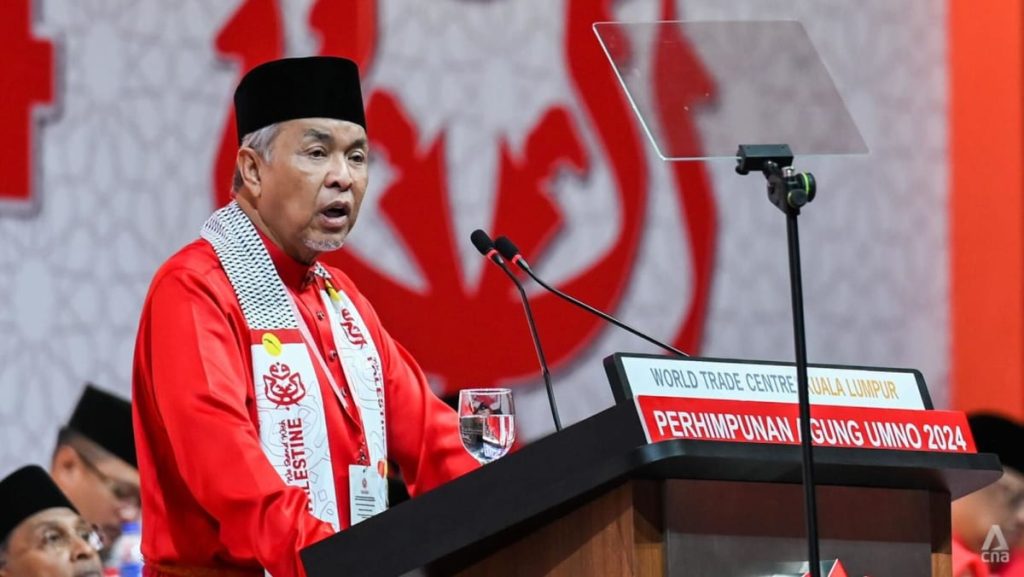The Malaysian Deputy Prime Minister, Ahmad Zahid Hamidi, has been definitively cleared of all 40 corruption charges related to a foreign visa system contract, marking a significant legal victory for the senior political figure. The prosecution’s decision to withdraw its appeal against Zahid’s earlier acquittal by the Shah Alam High Court effectively brings the protracted legal battle to a close. This outcome solidifies Zahid’s position within the current Malaysian political landscape, where he serves as president of the United Malays National Organisation (UMNO), a key component of Prime Minister Anwar Ibrahim’s unity government.
The initial charges against Zahid, which stemmed from his tenure as Home Affairs Minister between 2013 and 2018, alleged that he had received bribes totaling S$13.56 million (US$10.1 million) from Ultra Kirana Sdn Bhd. This company was contracted to manage the foreign visa system and one-stop services in China. The prosecution’s case contended that these payments were made to secure the initial contract award and its subsequent extension to 2025. Furthermore, Zahid faced seven additional charges related to accepting bribes in various currencies, also allegedly from Ultra Kirana, while serving as Home Minister. These accusations painted a picture of Zahid leveraging his powerful position for personal financial gain.
However, the prosecution’s case ultimately faltered due to several key weaknesses identified by the trial judge and reiterated by the Deputy Public Prosecutor (DPP), Yusaini Amer Abdul Karim. Crucially, the prosecution conceded that there was no evidence directly linking Zahid’s actions to the awarding of the contracts in question. This lack of a clear quid pro quo undermined the core of the corruption allegations. The trial judge’s findings further highlighted critical flaws in the investigation, noting the absence of a thorough probe into the origin of the funds received by Zahid and the identities of individuals purportedly involved in channeling funds from overseas. These investigative shortcomings further weakened the prosecution’s case, leaving significant gaps in the narrative of corruption.
The DPP’s explanation for the withdrawal of the appeal emphasized the careful consideration given to the trial judge’s comprehensive grounds for acquittal and two representations submitted on Zahid’s behalf. This suggests that the prosecution, after reviewing the available evidence and legal arguments, concluded that pursuing the appeal would be unlikely to succeed. The decision to withdraw signifies a recognition that the evidence presented was insufficient to meet the burden of proof required for a conviction in a corruption case. This underscores the importance of robust investigative processes and the presentation of compelling evidence in upholding the principles of justice.
The three-judge Court of Appeal subsequently upheld the acquittal, formally ending the legal proceedings against Zahid. This final decision provides Zahid with complete legal exoneration and reinforces the principle of “innocent until proven guilty.” The acquittal allows Zahid to continue his political career without the cloud of these corruption charges hanging over him. His public expression of gratitude, both to his legal team and in a social media post, reflects the personal and professional significance of this legal victory.
The outcome of this case has broader implications for the Malaysian political scene. Zahid’s acquittal removes a significant source of uncertainty surrounding his leadership of UMNO, a party instrumental in the formation of the current unity government. With this legal battle behind him, Zahid can now focus on his political role and contribute to the stability of the ruling coalition. This case also highlights the challenges of prosecuting high-profile corruption cases and underscores the importance of thorough investigations and the presentation of compelling evidence to ensure accountability and maintain public trust in the justice system.

